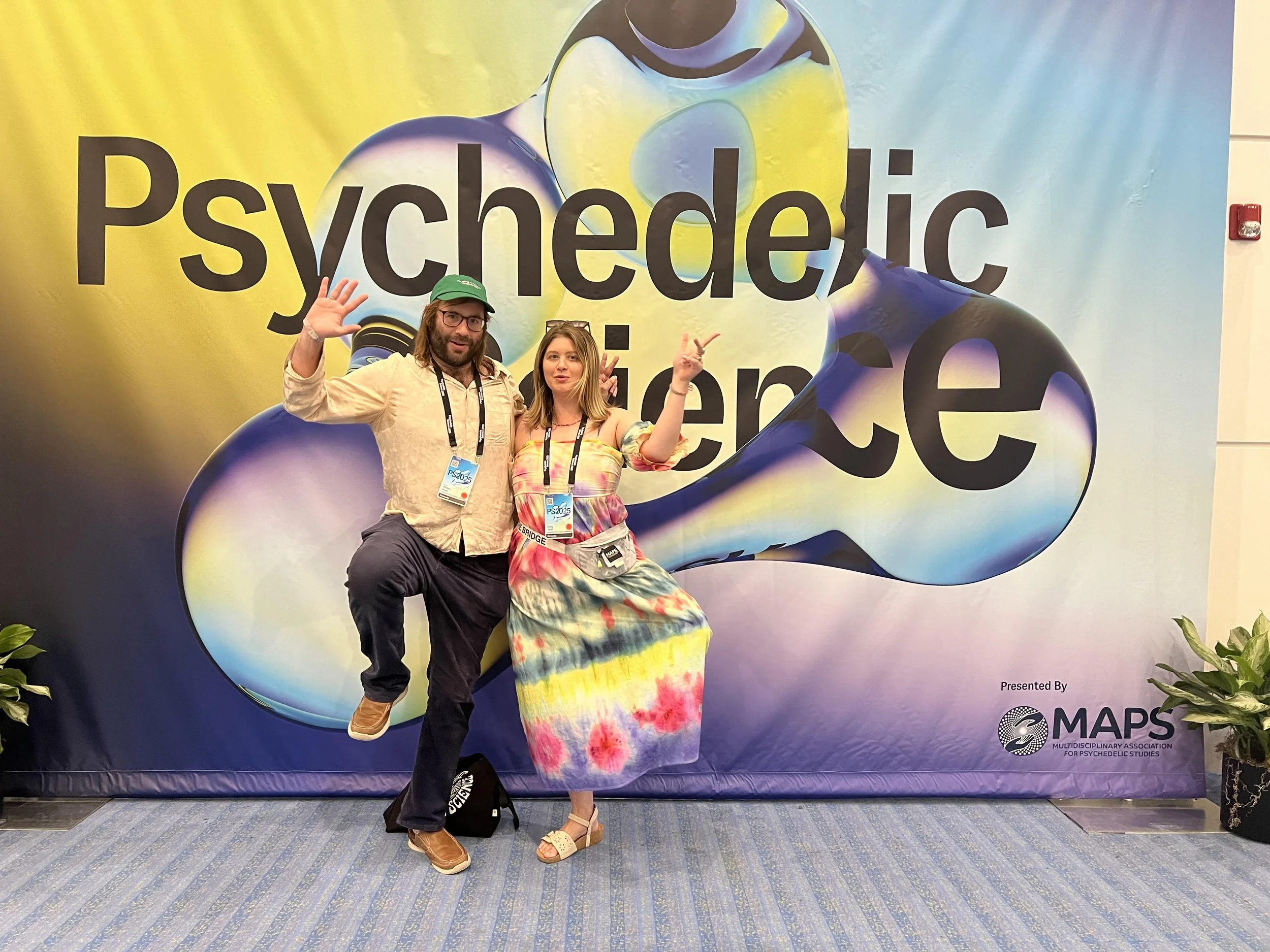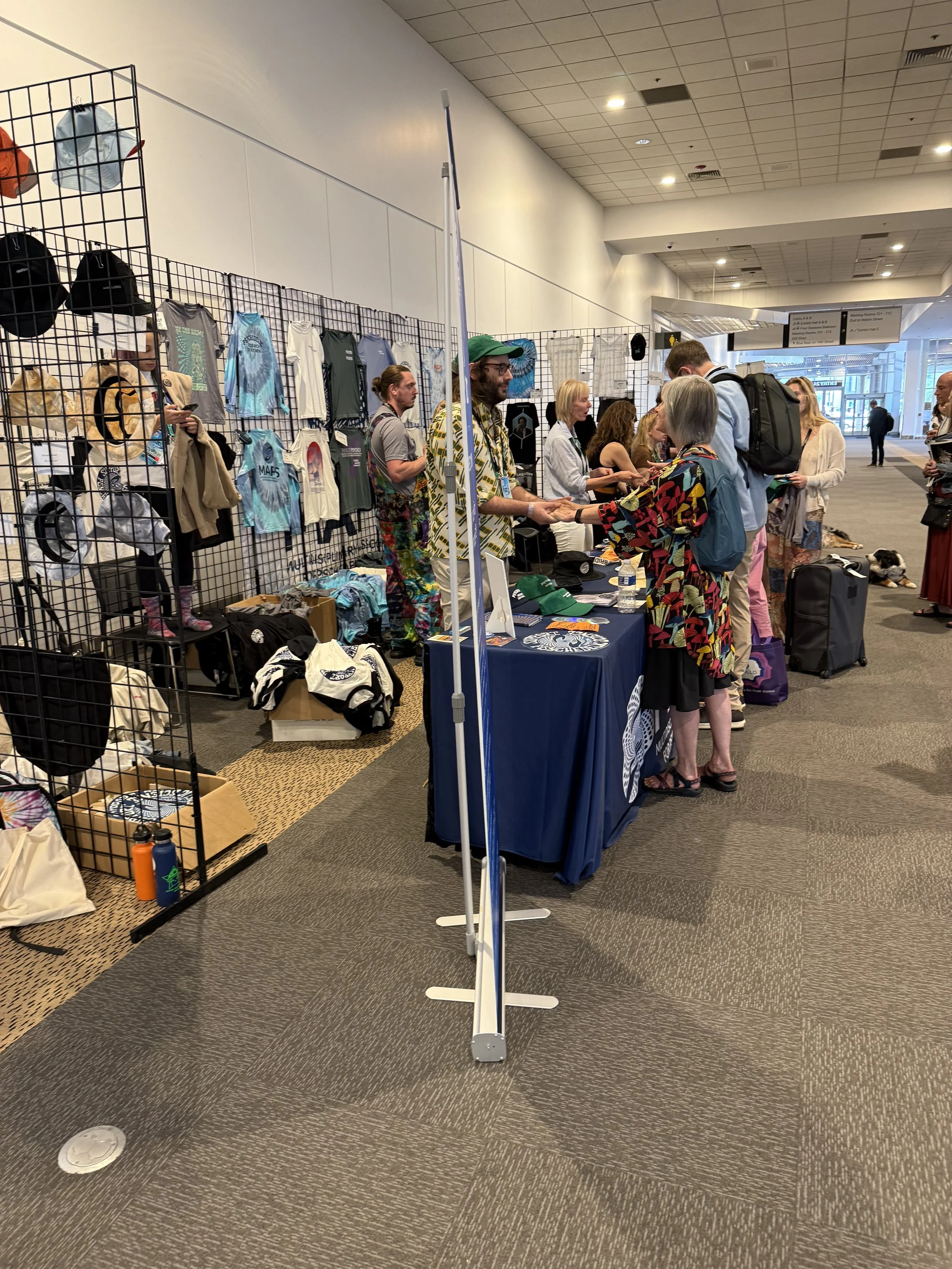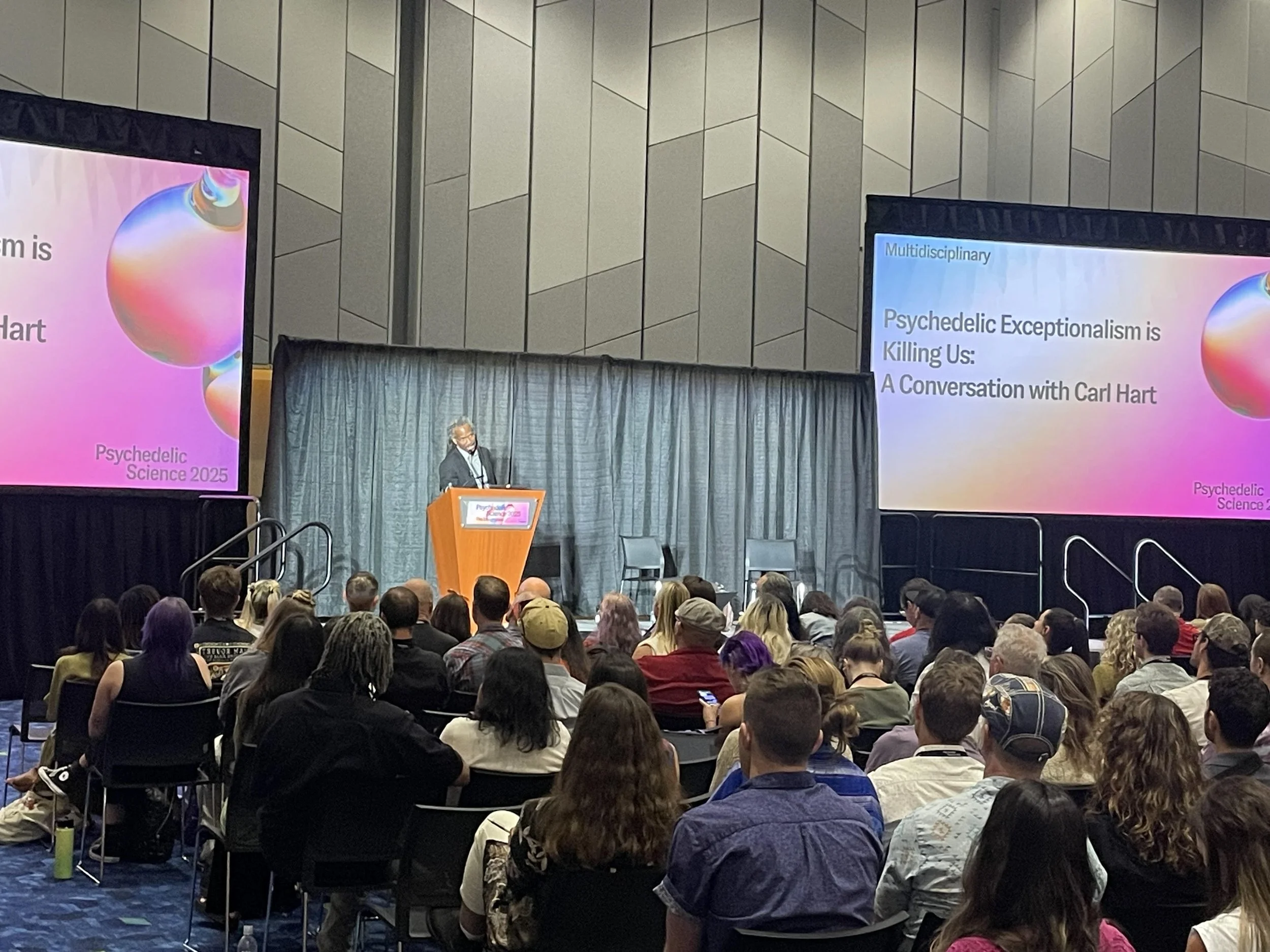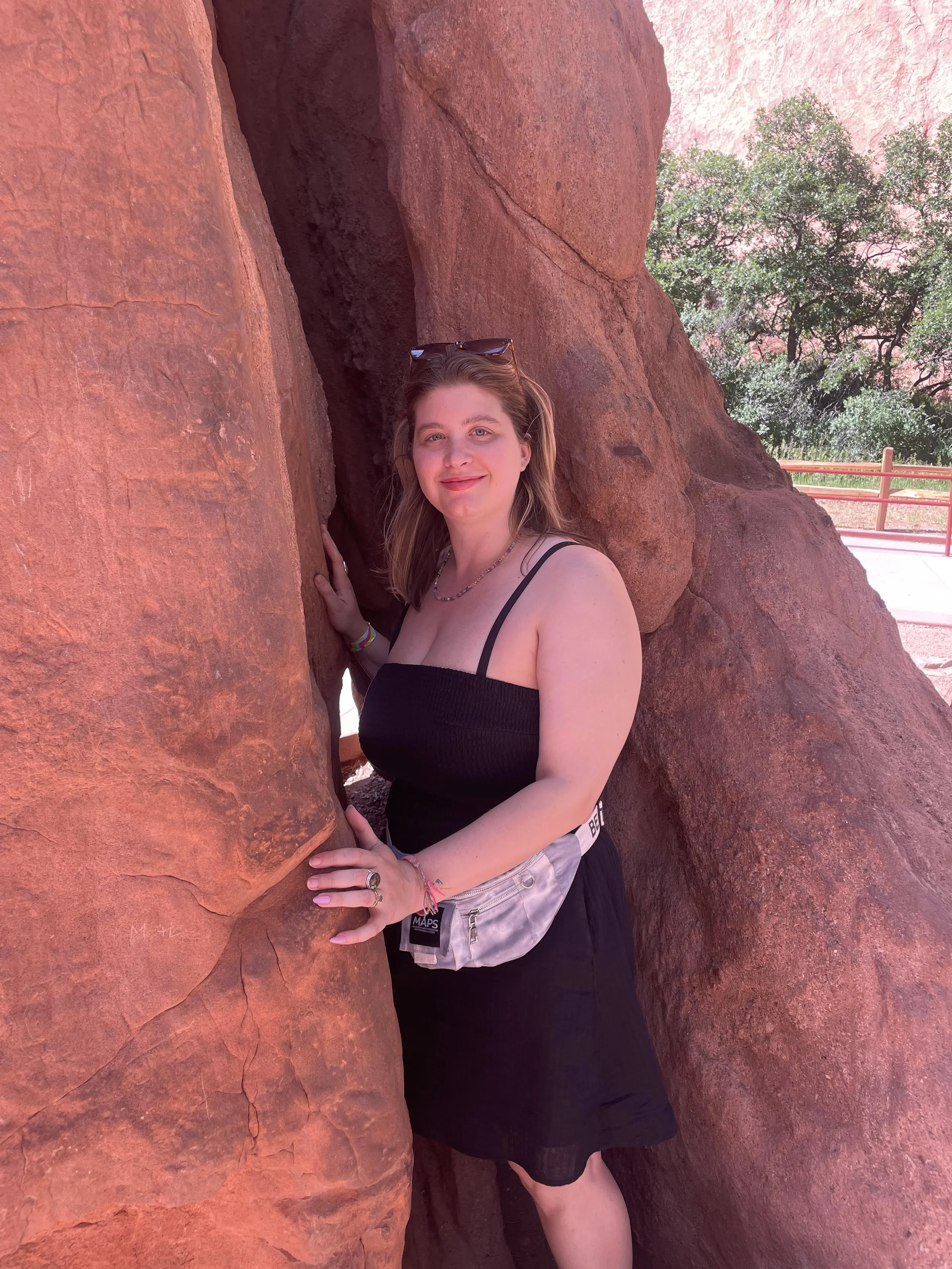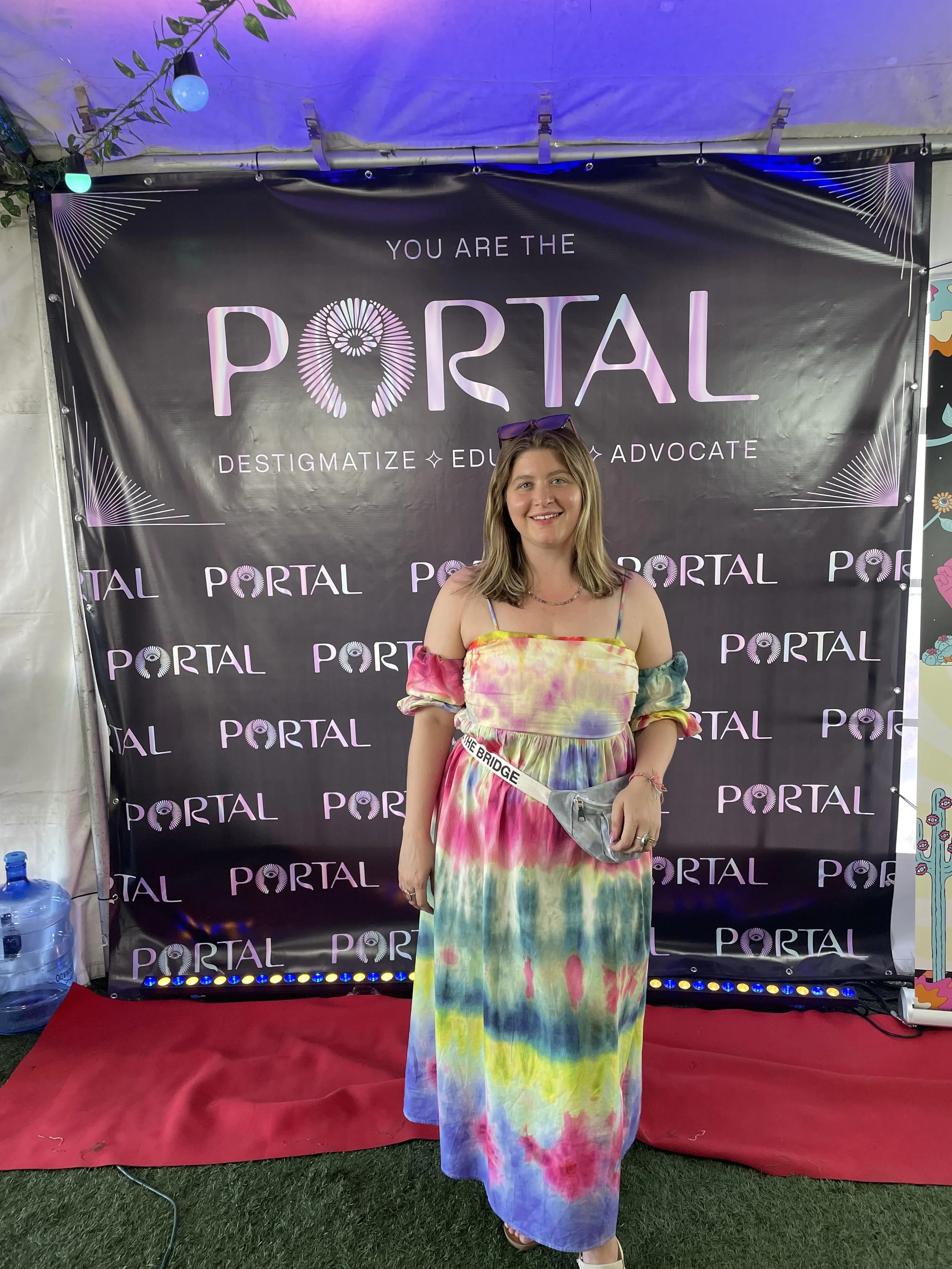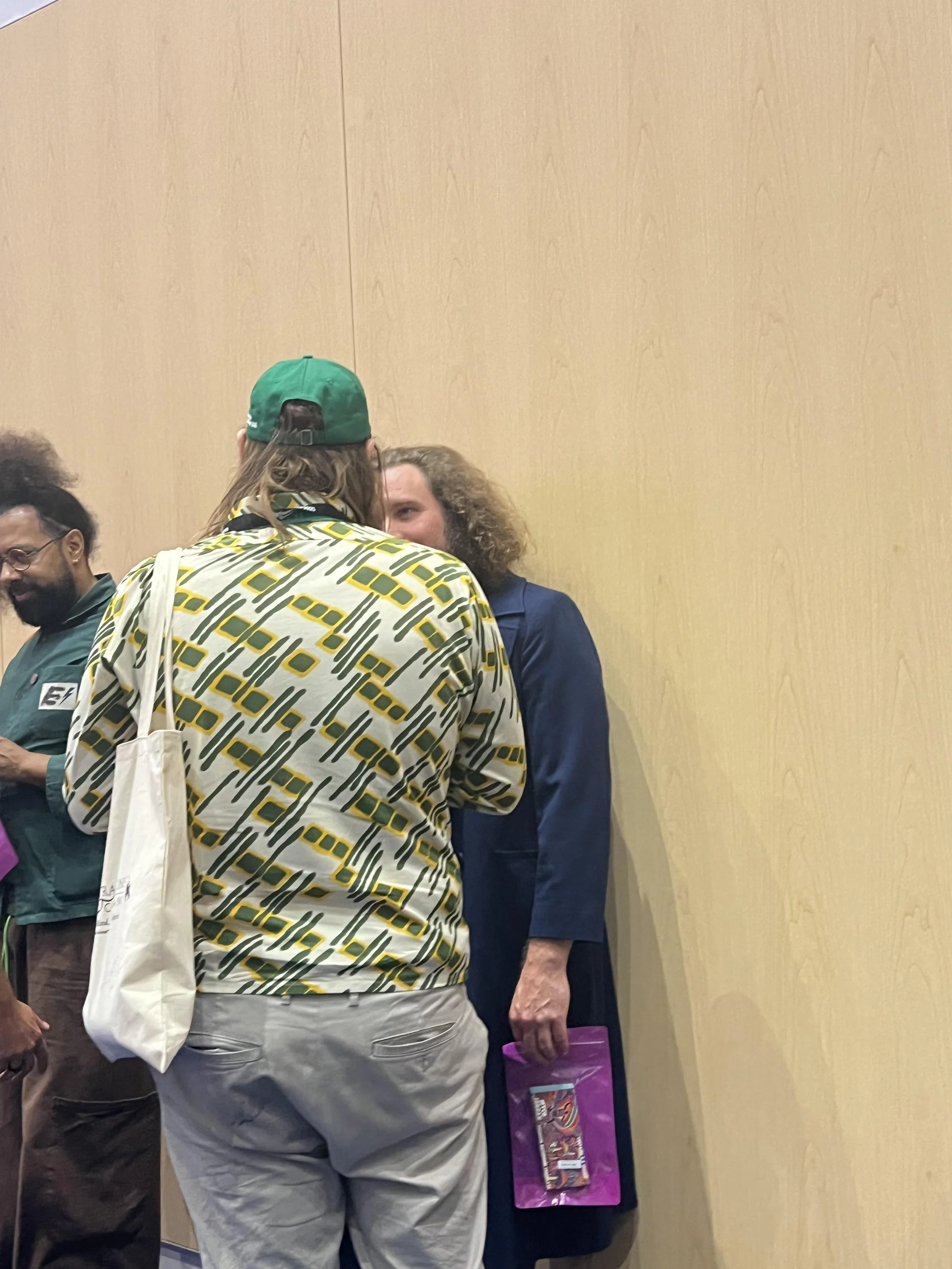Psychedelic Science 2025 Reflection
We were told to be silly by our new friend Rex who wouldn’t take no for an answer
In June of 2025, the aboveground world of psychedelics was fully realized in Denver. Psychedelic Science is a conference put on by MAPS, the Multidisciplinary Association of Psychedelic Studies. Rick Doblin has been their leader, fighting for pathways to access MDMA assisted psychotherapy for individuals suffering from PTSD since 1986, the same year MDMA was removed from legal channels of access. Despite the major set back in 2024, the news reported this year was mostly positive from a public policy standpoint. There were dedicated meetups for individuals from (the most) “legal” places due to the unique scenario of their current psychedelic experience. According to news outlets over the weekend, there were more legal mushroom events for adults advertised in Denver than ever before. Attendees told us of psychedelic gatherings of over 40 people in temple settings. For me and many others I spoke to, Psychedelic Science 2025 was a distinctly different experience compared to 2023.
In 2023, I had just finished my master’s thesis, From Scandalized Experiments to Standardized Therapy: MDMA and Race in Modern America. At the 2023 conference, I was able to attend all the talks that I wanted. Walking around the convention center, cramming into rooms full of people sitting on the floor, spilling out into the hallway, I thought the scene mirrored that of a hall full of yogis meeting to hear (our gurus) the legends of the clinical psychedelic space reflect on their progress. Or maybe that was because I had just finished a 200-hour Yoga Teacher Training program with Yoga Is Us. I was also in the midst of a year-long psychedelic integration program through Psychedelics Today, known as VITAL. My first Psychedelic Science was a chance to bring this online group to life and meet some of my cohort in person. My entrance into the scene presented a picture of a psychedelic ecosystem directly aligned with my master’s research. The space was predominantly white, and the clinical trial literature widely reported on did not place heavy emphasis on different PAT outcomes based on race.
Sharing my addiction recovery journey
At that first conference, I attended a workshop on decriminalizing plant medicine, where I was fortunate to meet two others from Charleston. One was a veteran who was advocating for veteran access to plant medicine and the other a psychiatrist working with MAPS trials in the area. Walking around the conference in 2023, I was in a state of shock given the public nature of psychedelia on display in Denver and my upbringing in the underground world of Charleston, South Carolina. Charleston is better known as the Holy City, a crown jewel in the buckle of the Bible Belt. The energy in 2023 was one of unending optimism in the ambitious pursuit of the FDA regulating MDMA-assisted psychotherapy for PTSD. Following the August 9th, 2024, rejection of MDMA-assisted psychotherapy, I lost faith in the country's potential to realize the level of momentum felt in Colorado in June of 2023. The election of Donald Trump only furthered my disillusionment with our current global political realities. Returning to the conference in 2025 with my wife in tow for both of us to volunteer with MAPS was a very different experience. I had high hopes of meeting Rick Doblin, Leonard Picard, Hamilton Morris, and a number of other psychedelic leaders in the space. These dreams weren’t fully realized due to the draining nature of serving at the merch booth for 25 hours during the busy week. The level of socialization required to excel brought me back to my public school persona and was a far cry from my experience over the past year socially adjusting to the climate of Saskatoon. It was a vibe. Luckily, Emily was an usher and had access to hearing talks and would tell me when to sneak a break, and I was able to hear a select number of key speakers.
Dr. Carl Hart taking a stand on Psychedelic Exceptionalism
Overall, the energy at the conference was in a different place than in 2023, but people were still displaying the kindest face of humanity possible. Almost every person whom I asked to share their story ended up asking me where I was from and what my “psychedelic connection was.” At the merch booth, rather than connecting with the upper crust of psychedelia, I was able to connect with the people on the ground, putting the content discussed during these talks into action. I met practitioners from all over the world. Social workers, psychiatrists, psychologists, art therapists, psychedelic guides, musicians, and more came from every corner of the United States, Canada, Mexico, Colombia, Peru, Germany, Switzerland, Spain, Australia, and New Zealand. There were men and women of every ethnicity present, and through interviewing all my wonderful customers on the spot, I learned that many practitioners are now attempting to work with as diverse a client base as possible. Some of these providers now offer a sliding scale to marginalized community members, and others, I could tell, felt that they should begin to do so based on the look in their eyes when answering my questions. Sure, some people were in a rush to get to their next talk, specifically if they were speaking, but the people seemed to relish in an opportunity to reflect on their “psychedelic connections”. Given my limited availability for prime time speaking engagements, with 11-4 shifts most days. I was fortunate to be able to sneak off to hear Dr. Carl Hart speak of psychedelic exceptionalism in the plant medicine space, an important topic to me as a recovering cocaine/painkiller/prescription drug user who has radical beliefs around access in relation to these materials. Historically, the opium poppy and the coca plant have done as good for mankind as psilocybin, ayahuasca, peyote, and the mythical Soma. This is debatable if you adopt the approach that psychedelic plants enacted modes of sentience, but without coca and opium, essential human developments would have never occurred.
We had time for nature too
Another highlight of the conference was getting to attend a panel on cultural representation with an Indigenous peyote medicine man from Arizona, an Ibogaine scholar from Gabon, and a Brazilian ayahuasca shaman. The energy in this container was transcendent with palo santos burning and a translator on stage interpreting the Brazilian story of early ayahuasca use in the rainforest, powerfully impacting his ancestral world view. This panel’s BIPOC representation from Africa, North America, and South America was a powerful display of global cultural consciousness. Overall to me it felt like the level of BIPOC representation at the 2025 conference was increased. These speakers mentioned the need to reserve these medicines for them, particularly peyote, in order to keep future generations in touch with ancestral wisdom.
Emily outside the Portal Dome, which for Jim James’ listening party was a mini version of the Sphere with acid test-like visuals, stories, and songs.
For my inner child, the real highlight of the conference was meeting Jim James, the lead singer of My Morning Jacket. Jim joined the conference at the last minute, and his name appeared on the "Have a Good Trip 2" live event, which featured an Indigenous dance troop, Vic Mensa, Reggie Watts, and Flying Lotus. To be honest, if it weren’t for his addition to this event (as a DJ), we would have attended the Snow Raven Portal event. Given my “set” the week before psychedelic science, with the loss of two psychedelic prophets of the 1960s countercultural moment, Sly Stone and Brian Wilson, I was in need of Rock N Roll healing. I knew Jim was going to DJ some of their songs, and that there was no other container for me to be in to receive the level of healing I needed to finish my PhD computations. After dancing and singing with Emily right in front of Jim, we proceeded to see him around the conference hall all week. Just like my new 23-year-old neuroscience friend, who faltered in his ability to talk to his idol, Hamilton Morriss, the first time we crossed paths, all I could do was say, “There is Jim James.” After hearing his story of recovery, depression, anxiety, self-loathing, and healing through psychedelics, I know we are kindred spirits in touch with the same frequency, sharing the same mission in the psychedelic space. The cultural container of live music is essential to my understanding of the psychedelic scene, and elevating 21st-century cultural icons from the rap, rock, and production spaces to be involved in Psychedelic Science is the direction I believe we should be heading. The clinical trial space is beginning to become more comprehensive in its ability to document the spectrum of psychedelic use. Future Psychedelic Science conferences need to continue to tap into the traditional roots of plant medicine and focus on placing recreational use in the appropriate historical context.
From a healing perspective, the access to psychedelics in Denver did foster a collective feeling of harmony akin to the 1960s moment associated with the summer of love and the Woodstock era. With the recent advances in legal regulations, maybe before too long, psilocybin will continue to follow the path that cannabis did from decriminalization to regulation around the nation.
Come hear about everything we’ve been learning at Homegrown Healing Arts Fest on July 13th!
Meeting Jim James and sharing my recovery journey and connection to his album Eternally Even
